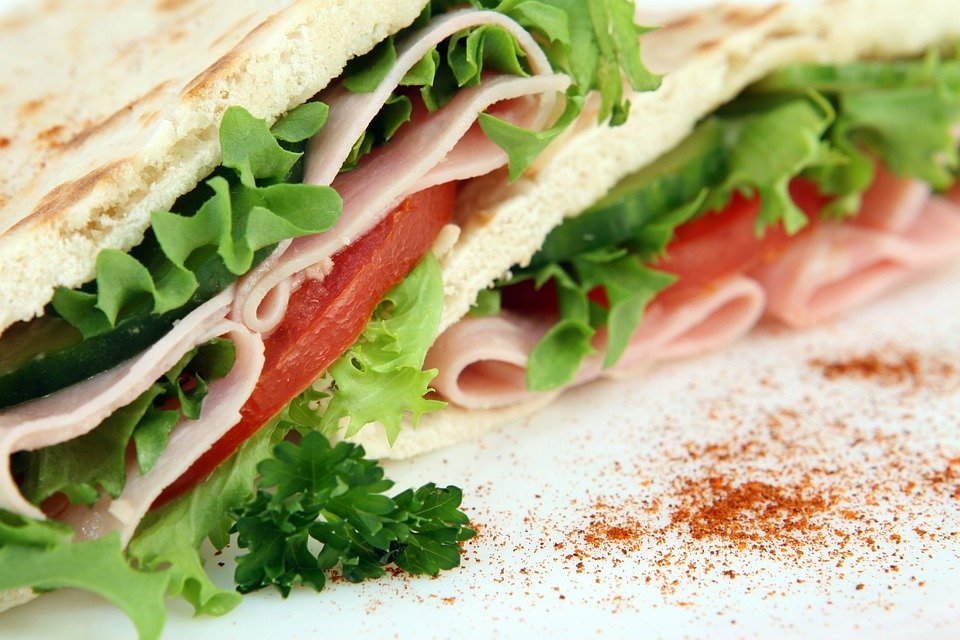How to Lose Weight with IBS: A Comprehensive Guide
Introduction:
Living with Irritable Bowel Syndrome (IBS) can be challenging, especially when trying to manage your weight. the symptoms of IBS, such as bloating, abdominal pain, and irregular bowel movements, can often hinder weight loss efforts. However, with the right approach and understanding of your body’s needs, it is indeed possible to shed those extra pounds while managing your IBS effectively. In this article, we will provide you with a comprehensive guide on how to lose weight with IBS, covering various aspects such as diet, exercise, stress management, and professional support.
1. Understanding the Connection Between IBS and Weight
To effectively address weight loss with IBS, it is crucial to understand the connection between the two. IBS is a chronic gastrointestinal disorder that affects the functioning of the gut. The symptoms vary from person to person, and some individuals with IBS may experience weight loss or weight gain as a result of their condition. However, for many, the challenge lies in losing weight while experiencing IBS symptoms.
2. Tailoring Your Diet for Weight Loss and IBS
Diet plays a vital role in managing both IBS and weight. However, due to the individual nature of IBS symptoms, there is no one-size-fits-all approach. It is essential to identify trigger foods that worsen your symptoms and avoid them. Some common trigger foods for IBS include high-fat foods, caffeine, alcohol, spicy foods, and artificial sweeteners. Instead, focus on incorporating a balanced diet that includes lean proteins, whole grains, fruits, vegetables, and probiotic-rich foods. Additionally, portion control and mindful eating can help manage weight while minimizing IBS symptoms.
3. The Importance of Regular Exercise
Regular exercise is crucial for overall health and weight management, even for individuals with IBS. Engaging in physical activity helps boost metabolism, burn calories, and improve digestion. However, it is essential to choose exercises that suit your body and IBS symptoms. Low-impact activities such as walking, swimming, yoga, or cycling can be excellent options. Start slowly and gradually increase the intensity and duration of your workouts, listening to your body’s signals and adjusting accordingly. Remember to stay hydrated during exercise and schedule your workouts at times when your symptoms are less severe.
4. Managing Stress for Weight Loss and IBS
Stress can significantly impact both weight and IBS symptoms. When stressed, some individuals may turn to emotional eating or experience worsened digestive symptoms. Therefore, managing stress is crucial for successful weight loss with IBS. Incorporating stress-reducing techniques such as meditation, deep breathing exercises, yoga, or engaging in hobbies can help alleviate stress levels. Additionally, seeking support from friends, family, or joining support groups can provide a valuable outlet for sharing experiences and coping strategies.
5. Seek Professional Support
While managing weight loss with IBS can be done independently, seeking professional support can greatly enhance your success. Consulting a registered dietitian who specializes in IBS can help tailor a personalized diet plan that suits your specific needs. They can guide you in identifying trigger foods, ensuring you meet your nutritional requirements, and help design a sustainable weight loss plan. Additionally, working with a therapist or counselor can assist in addressing any emotional or psychological challenges related to weight and IBS, fostering a holistic approach to your well-being.
Conclusion:
Losing weight with IBS may require some extra effort and a personalized approach, but it is entirely possible. Understanding the connection between IBS and weight, tailoring your diet, incorporating regular exercise, managing stress, and seeking professional support are all essential steps in achieving your weight loss goals while effectively managing your IBS symptoms. Remember, each individual’s journey is unique, so be patient with yourself, listen to your body, and make gradual, sustainable changes. With determination and the right strategies, you can achieve a healthy weight while living well with IBS.
Top Questions Regarding Lose Weight Ibs
What is IBS and how does it relate to weight loss?
IBS, or Irritable Bowel Syndrome, is a common disorder affecting the large intestine, causing symptoms such as abdominal pain, bloating, and changes in bowel habits. While IBS itself does not directly cause weight gain or weight loss, it can have an impact on an individual’s ability to manage their weight.
Three important pieces of information regarding the relationship between IBS and weight loss are:
1. IBS symptoms, such as abdominal pain and bloating, can make it challenging for individuals to engage in regular physical activity and maintain a consistent exercise routine.
2. Certain IBS triggers, such as certain foods or stress, can lead to emotional eating or overeating, which can result in weight gain.
3. Some individuals with IBS may experience fluctuations in weight due to changes in bowel habits and digestion.
Can weight loss help alleviate IBS symptoms?
While weight loss itself may not directly alleviate IBS symptoms, making certain lifestyle changes and adopting a healthy diet can potentially improve IBS symptoms. Losing weight in a healthy and gradual manner can have a positive impact on overall gut health and digestion, potentially leading to a reduction in IBS symptoms.
Three important pieces of information regarding weight loss and alleviating IBS symptoms are:
1. A healthy weight loss plan for individuals with IBS should focus on implementing dietary changes that reduce common triggers, such as high-fat foods, caffeine, and spicy foods.
2. Regular exercise can help improve digestion, reduce stress levels, and promote overall well-being, potentially leading to a reduction in IBS symptoms.
3. It is important to consult with a healthcare professional or registered dietitian before embarking on any weight loss journey, especially if you have IBS, to ensure personalized advice and guidance.
What are some dietary changes that can aid in weight loss for individuals with IBS?
Implementing certain dietary changes can be beneficial for individuals with IBS who are looking to lose weight. These changes aim to reduce triggers that may worsen IBS symptoms, while also promoting weight loss in a healthy manner.
Three important dietary changes for individuals with IBS who want to lose weight are:
1. Following a low-FODMAP diet: This diet restricts certain carbohydrates that can trigger IBS symptoms, such as lactose, fructose, and certain types of fiber. It is best to consult with a registered dietitian to ensure proper implementation of a low-FODMAP diet.
2. Increasing fiber intake: Gradually incorporating fiber-rich foods, such as fruits, vegetables, and whole grains, can help regulate bowel movements and promote satiety, aiding in weight loss.
3. Staying hydrated: Drinking an adequate amount of water throughout the day can help prevent constipation and promote healthy digestion, which is essential for individuals with IBS.
Are there any specific exercises that can aid in weight loss for individuals with IBS?
Engaging in regular physical activity is important for weight loss, but individuals with IBS may need to be mindful of exercises that could potentially trigger symptoms. While each person’s tolerance for exercise may vary, there are certain exercises that are generally well-tolerated by individuals with IBS.
Three important exercises that can aid in weight loss for individuals with IBS are:
1. Low-impact exercises: Activities such as walking, swimming, or cycling are easier on the joints and can be less likely to trigger IBS symptoms compared to high-impact exercises.
2. Yoga: Practicing yoga can help reduce stress levels, improve digestion, and promote relaxation, which can indirectly support weight loss efforts for individuals with IBS.
3. Strength training: Incorporating strength training exercises, such as using resistance bands or lifting weights, can help build muscle mass, boost metabolism, and support weight loss goals.
What lifestyle changes can support weight loss for individuals with IBS?
Making certain lifestyle changes can support weight loss efforts for individuals with IBS and help manage their symptoms more effectively. These changes aim to reduce stress, improve overall well-being, and promote a healthy lifestyle.
Three important lifestyle changes that can support weight loss for individuals with IBS are:
1. Stress management techniques: Implementing stress-reduction techniques, such as meditation, deep breathing exercises, or engaging in hobbies, can help minimize IBS symptom flare-ups and emotional eating.
2. Prioritizing sleep: Getting enough quality sleep is crucial for overall health and weight management. Aim for 7-9 hours of sleep per night to support weight loss goals and enhance overall well-being.
3. Maintaining a food diary: Keeping track of food intake and symptoms in a food diary can help identify trigger foods and patterns, enabling individuals with IBS to make more informed decisions about their diet and support weight loss efforts.
Remember, it is essential to consult with a healthcare professional or registered dietitian before making any significant changes to your diet, exercise routine, or lifestyle, especially if you have IBS. They can provide personalized guidance and ensure your weight loss journey is tailored to your specific needs and health condition.
Common Misconceptions about Losing Weight with IBS
Losing weight with irritable bowel syndrome (IBS) can be a challenging journey, as individuals with this condition often experience digestive issues and may have specific dietary restrictions. Unfortunately, there are several misconceptions surrounding weight loss and IBS that can hinder progress and result in frustration. To help clear up these misconceptions, let’s explore them in detail:
Misconception 1: Cutting out all carbohydrates is necessary for weight loss with IBS
One common misconception is that individuals with IBS need to eliminate all carbohydrates from their diet to successfully lose weight. While it is true that certain carbohydrates can trigger symptoms in some people with IBS, such as those high in FODMAPs (Fermentable Oligosaccharides, Disaccharides, Monosaccharides, and Polyols), it is not necessary to completely eliminate all carbohydrates. It is crucial to work with a healthcare professional or registered dietitian to identify specific trigger foods and develop a personalized dietary plan that allows for a balanced intake of carbohydrates.
Misconception 2: Skipping meals is an effective strategy for weight loss with IBS
Another misconception is that skipping meals can aid in weight loss for individuals with IBS. However, skipping meals is not a recommended strategy for weight loss, especially for those with IBS. Irregular eating patterns and prolonged periods without food can disrupt the digestive system and potentially worsen IBS symptoms. It is important to focus on consuming regular, balanced meals that include a variety of nutrients to support overall health and weight management.
Misconception 3: All high-fiber foods should be avoided for weight loss with IBS
Some individuals believe that all high-fiber foods should be avoided when trying to lose weight with IBS. While certain high-fiber foods can exacerbate symptoms in some individuals, it is not necessary to eliminate all high-fiber foods from the diet. Soluble fiber, found in foods like oats, barley, and certain fruits and vegetables, can actually help regulate bowel movements and improve symptoms of IBS. Including these fiber-rich foods in a well-balanced diet can support weight loss efforts while also promoting digestive health.
Misconception 4: Exercise should be avoided due to IBS symptoms
A common misconception is that individuals with IBS should avoid exercise altogether due to the potential exacerbation of symptoms. However, regular physical activity is an essential component of overall health and weight management, even for individuals with IBS. Engaging in low-impact exercises, such as walking, swimming, or cycling, can help improve digestion, reduce stress levels, and promote weight loss. It is important to listen to your body and find exercises that are comfortable and suitable for your individual needs.
Misconception 5: Weight loss supplements are a quick fix for losing weight with IBS
Many people believe that taking weight loss supplements can provide a quick fix for losing weight with IBS. However, relying solely on supplements is not a sustainable or healthy approach to weight loss, especially for individuals with IBS. It is important to prioritize a well-rounded diet, regular physical activity, and lifestyle modifications in order to achieve and maintain a healthy weight. Consulting with a healthcare professional or registered dietitian can help determine if any supplements are necessary and safe for your specific situation.
In conclusion, it is crucial to address and dispel the common misconceptions surrounding weight loss with IBS. Cutting out all carbohydrates, skipping meals, avoiding all high-fiber foods, avoiding exercise, and relying solely on weight loss supplements are all misconceptions that can hinder progress and potentially worsen IBS symptoms. By seeking guidance from healthcare professionals and registered dietitians, individuals with IBS can develop personalized strategies for weight loss that prioritize overall health and well-being.
Lose Weight Ibs
#Lose #Weight #Ibs


